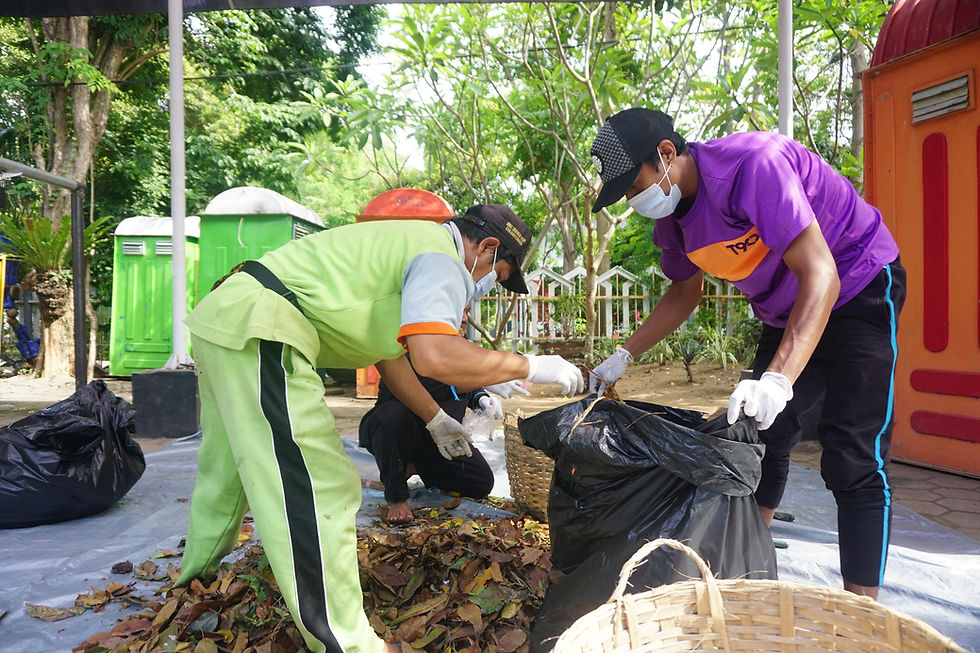Developing Inclusive Waste Management in Indonesia
- Oda Kristin Korneliussen

- Feb 9, 2021
- 2 min read
Updated: Mar 10, 2021
Clean Oceans through Clean Communities (CLOCC) is connecting local waste management authorities with villagers to join forces to improve waste management in Indonesia’s Banyuwangi region.
CLOCC has successfully completed its first workshop of 2021 to enhance waste management systems in Indonesia. The workshop was conducted in cooperation with CLOCC’s local partner InSWA (Indonesia Solid Waste Association).
The objective of CLOCC, financed by Norad (Norwegian Agency for Development Cooperation), is to reduce marine plastic pollution through improving waste management in Indonesian communities.
CLOCC's approach is to cooperate with local authorities to strenghthen capacity in waste management. A key tool is to create strong and sustainable waste management plans.
—To be implemented in an efficient and sustainable way, the waste management plans must be locally anchored, says CLOCC’s project manager Sigve Ånderå. Therefore it is important that local authorities and villagers create the waste management plans together.
A bottom-up approach
During the workshop, the local authorities taking part in the CLOCC programme met with leaders and inhabitants of seven local villages. They discussed how waste management is implemented in their village. This way, the new waste management plans can be better adapted to the local context.
The method CLOCC is using is Integrated Sustainable Waste Management (ISWM). The concept of ISWM has been developed to address common challenges with municipal waste management in low and middle income countries. The approach sets the stakeholders, including its users, and local institutions, in focus.
—A challenge with waste management planning in Indonesia, and in many other developing countries, is that the systems are designed with a consultant based approach, and by foreign consultants with little involvement of the local stakeholders. Therefore ownership becomes weak, and many waste management plans are not implemented effectively, says project manager for CLOCC in InSWA, Satya Oktamalandi.
Therefore, ISWM gives power back to local stakeholders wherein they make the decisions and choose the system that meets their needs in a bottom up approach.
The approach centers around the belief that if the villagers are involved in the waste management planning; this will create a broad ownership that can increase motivation to improve waste management.

Expanding local opportunities
CLOCC will further continue training local authorities in Banyuwangi towards completing and implementing the new waste management plans.
CLOCC plans to expand to new regions in Indonesia, including Bali. The Bali province, where CLOCC implemented its pilot training in 2019, has challenges with plastic pollution and lacking waste management capacity. Therefore, this is an area where improving waste management truly can have a positive impact to reduce plastic waste from entering the oceans.
Want to learn more about CLOCC? Get in touch!

.png)









Comments